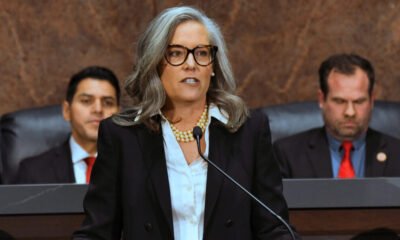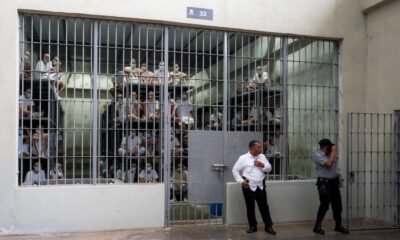Arizona State University
Two Justices to Abstain from Critical Retention Case Decision

Two Arizona Supreme Court Justices Recuse Themselves from Proposition 137 Case
Two Supreme Court justices, Clint Bolick and Kathryn King, have recused themselves from ruling on the legal status of Proposition 137, a measure proposed by Republican lawmakers that could alter the judicial election process.
Despite their decision to step away from the case, the remaining justices affected by the outcome will still participate. If passed, Proposition 137 would grant extended six-year terms to Bolick and King even if voters choose to remove them from office.
The other justices, who face potential new terms in 2026 or 2028, will also decide on the matter. Chief Justice Ann Scott Timmer declined to comment on the situation, but Arizona State University’s Paul Bender raised questions about whether the remaining justices should also recuse themselves given the impact on their future elections.
Bender suggested that retired justices, who have no stake in the case, could serve as replacements. This approach has precedent; retired Justice John Pelander was tapped to sit in on another case due to potential conflicts of interest.
However, replacing all current justices in the Proposition 137 case seems unlikely. Jim Barton, representing the challengers to the proposition, stated that they would not request a new panel of justices, referencing a past instance where justices were replaced for a pension system-related case.
Proposition 137 aims to change the judicial retention system, allowing judges to stay on the bench until mandatory retirement at 70 unless certain conditions such as felony convictions or personal bankruptcy arise. Currently, judges face retention elections every four or six years, depending on their court.
Another contentious aspect of Proposition 137 is the provision allowing the majority party in the House and Senate to select members for the Judicial Performance Review Commission. This has raised concerns about potential legislative interference with the judiciary.
The proposed retroactivity clause in Proposition 137 is also significant. If passed, it would nullify the results of this year’s retention elections, which include Bolick and King, retroactively to October 31.
While the legal implications of Proposition 137 are under scrutiny, the political landscape is also at play. If Bolick and King are not retained, Democratic Gov. Katie Hobbs would have the opportunity to appoint their replacements, altering the court’s makeup. This possibility has motivated conservative activists like Randy Kendrick to campaign for their retention.


















